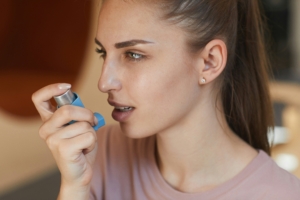Spanish biotech sector attracts investors
Spanish biotech sector:?European investors more and more often take a look at Southern European biotech companies. Spain, in particular, is now harvesting the fruits of long-term public support started a decade ago, which stimulated the establishment of a dynamic ecosystem. Today, foreign investments are at an all-time high and start-ups find a well-prepared basis for growth.
Spain is definitely a region to watch, says Giovanni Mariggi, Partner at UK-based Medicxi, who in June 2017 enlarged its investment strategy and launched its first $300m late stage life science fund for European life science companies. In Autumn, the VC manager was among the 50 Spanish, French, Swiss, and British investors invited to a one-day conference organised by Spanish biotech organisation ASEBIO in the Barcelona Science Parc.
The ASEBIO Investor Day demonstrated that foreign investors, such as Merck Ventures, Sofinnova Partners, and Novartis Venture Fund, are increasingly interested to see what the Spanish biotech companies have in their pipelines. During the last ten years, the sector significantly improved in terms of maturity and financings, said Ion Arocena, CEO of ASEBIO. According to the latest Spanish biotech report, 26 deals with €63.6m took place in 2016, 158 alliances were announced and 43 startups were founded. From his perspective, these numbers demonstrate the huge development the sector has made since 2008, when the Spanish government decided to put extra money into the life sciences. Back than, some people believed that the life sciences were not a real industry. Today, we have successfully established a dynamic ecosystem, which is the basis for a strong local investors community and, which, in turn, increasingly attracts international investors, Arocena pointed out. For this year, the numbers also indicate further growth. Arocena: We already now obtained the level of the whole year of 2016.
Strong investor community
One of the key players in the Spanish biotech sector is Catalonia. 82% of the capital of Spanish biomedical companies are in the hands of Catalan investors, such as Barcelona-based Ysios Capital. Founded in 2008, the VC has €191.4m in assets under management through its two funds. It invested in 11 Spanish companies, which have raised a total of €300m to date. Only €15m came from us – this demonstrates the value local investors can have, said Raul Marin-Ruiz, Principal in Ysios Capital. Publicly supported research areas such as Barcelona Science Parc are very attractive. "We started 20 years ago and today, we are home to four R&D science centers and more than 50 life science companies, said Ignasi Belda, CEO of the parc.
However, new technologies are developed all over the country, as demonstrated by the 30 startups showcased on the Investors Day. The expertise ranged from novel drugs to combat antimicrobial resistance (Remab, Vaxdyn), cancer (Ability Pharma, Leadartis), Alzheimer’s disease (Tetraneuron) or inner ear disorders (Spiral Therapeutics); to innovative diagnostic solutions (NBS Newborn solutions) or drug discovery technologies (Aniling); regenerative medicine approaches (Regemat3D, Qrem); and algae-based products for the use in cosmetics or agriculture (AlgaeEnergy, Neoalgae).
BIOSPAIN 2018 in Sevilla
One of the next opportunities to meet Spanish stakeholders will be from 25-27 September 2018 in Sevilla. We expect around 3,000 people to join us for BIOSPAIN 2018, said David Fernández from ASEBIO. The previous event in 2016 hosted about 230 exhibitors and attracted 700 companies from 29 countries.
(First published in European Biotechnology, Winter Edition 2017)


 BioDlink
BioDlink
 Unsplash+
Unsplash+